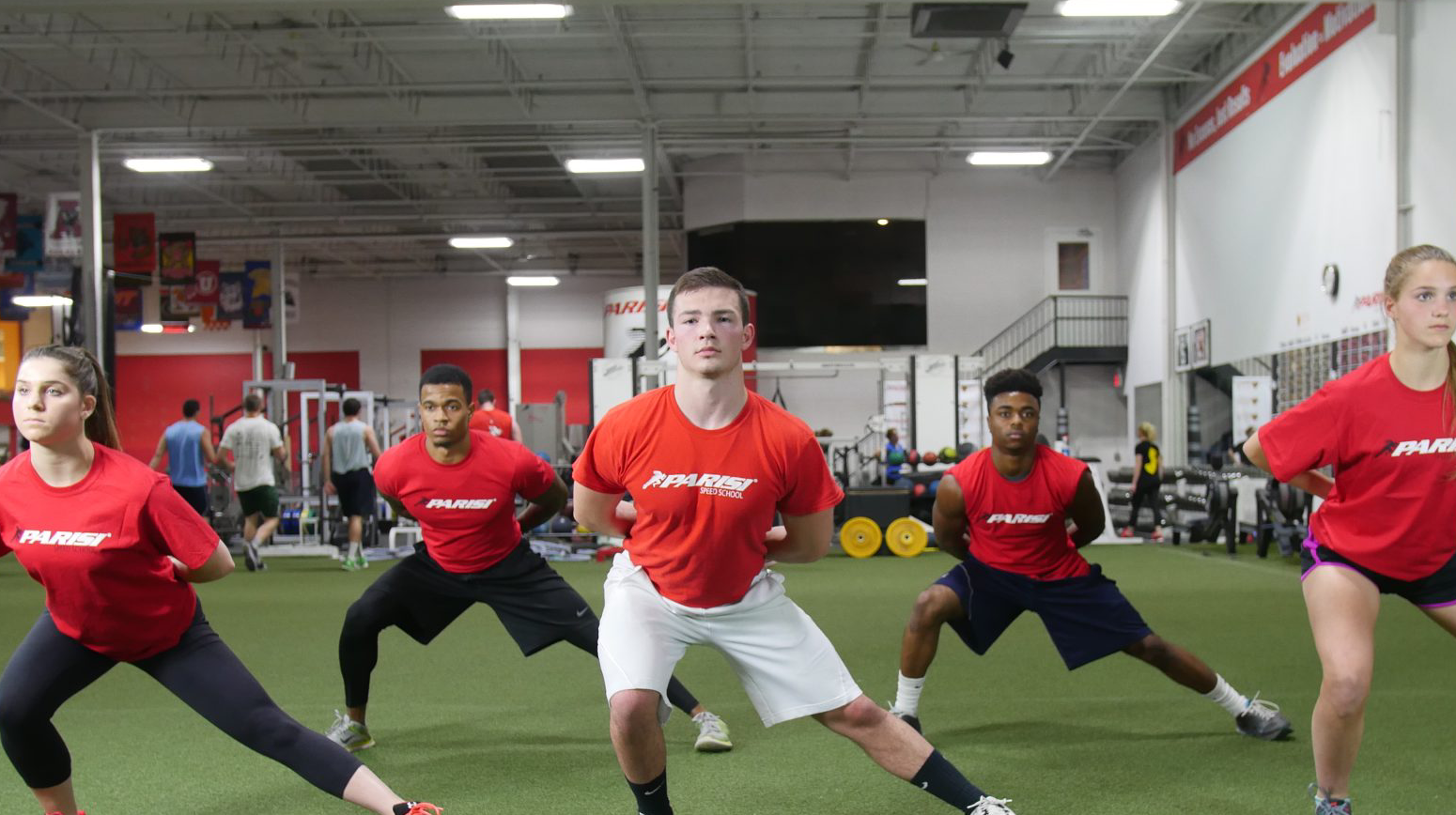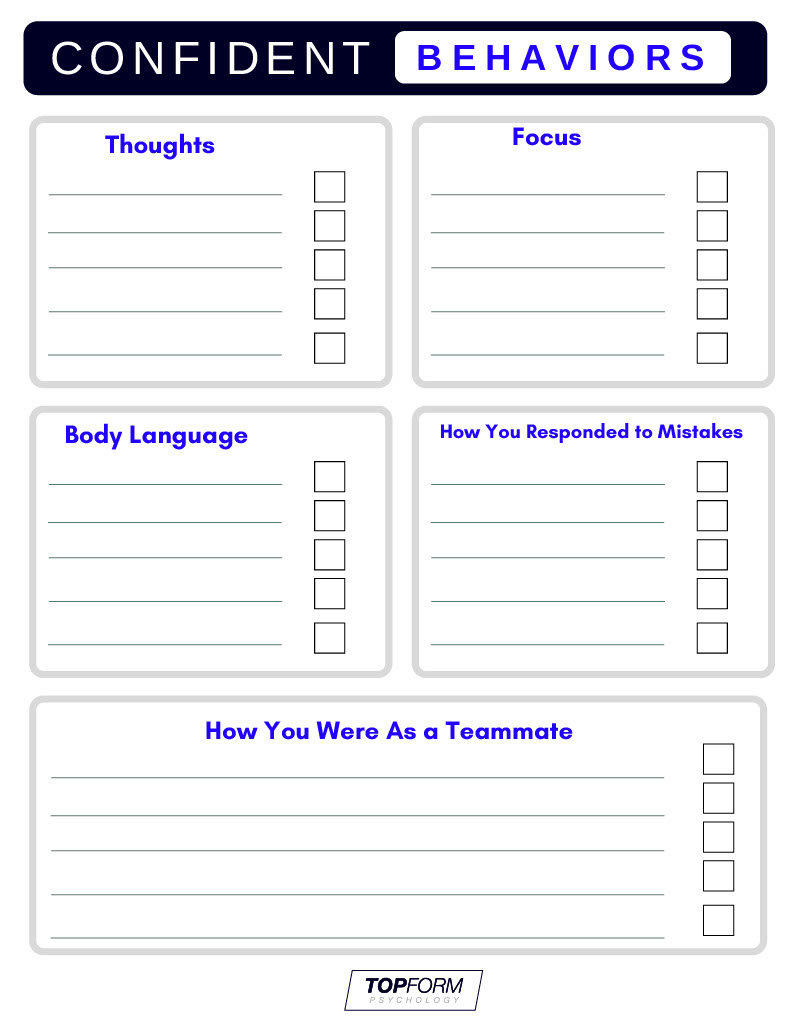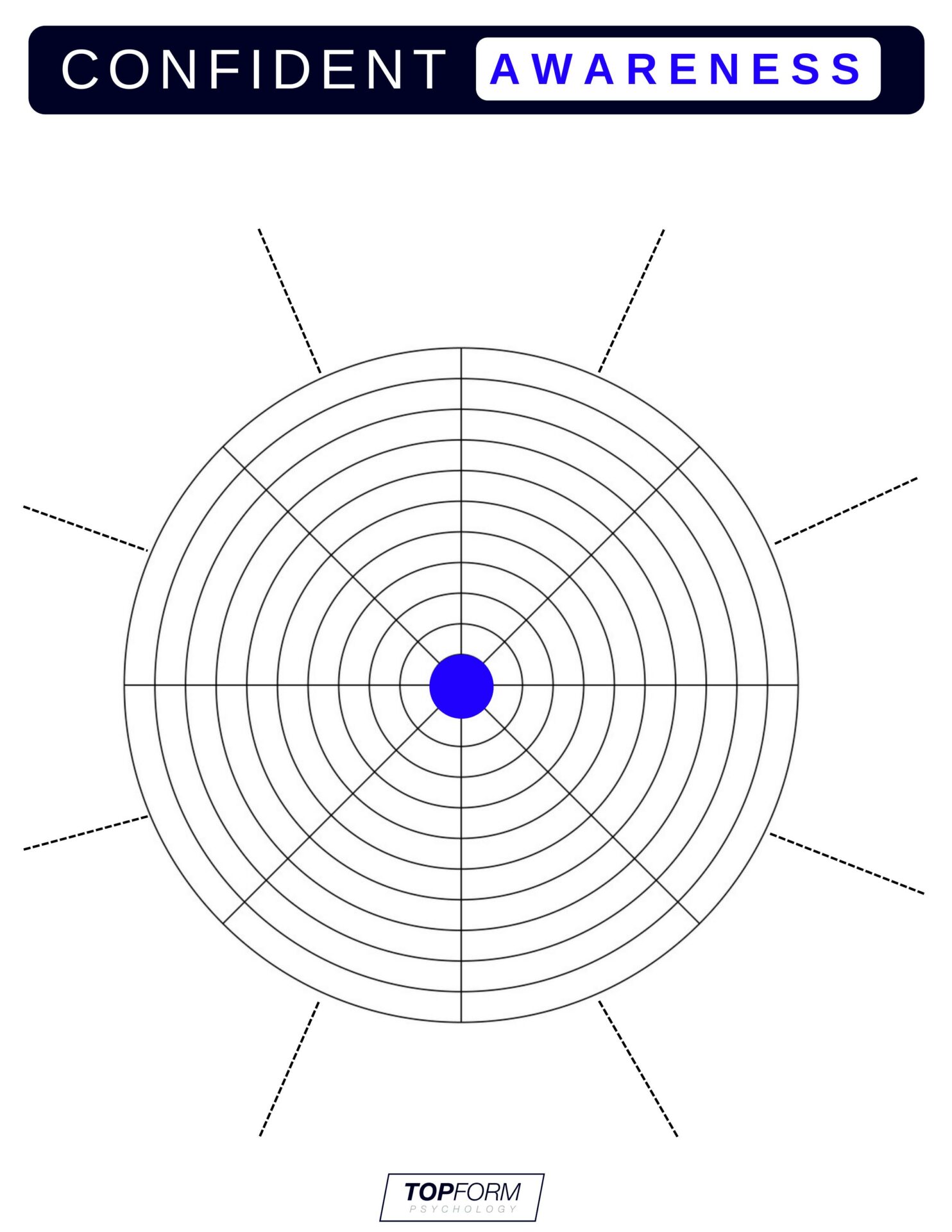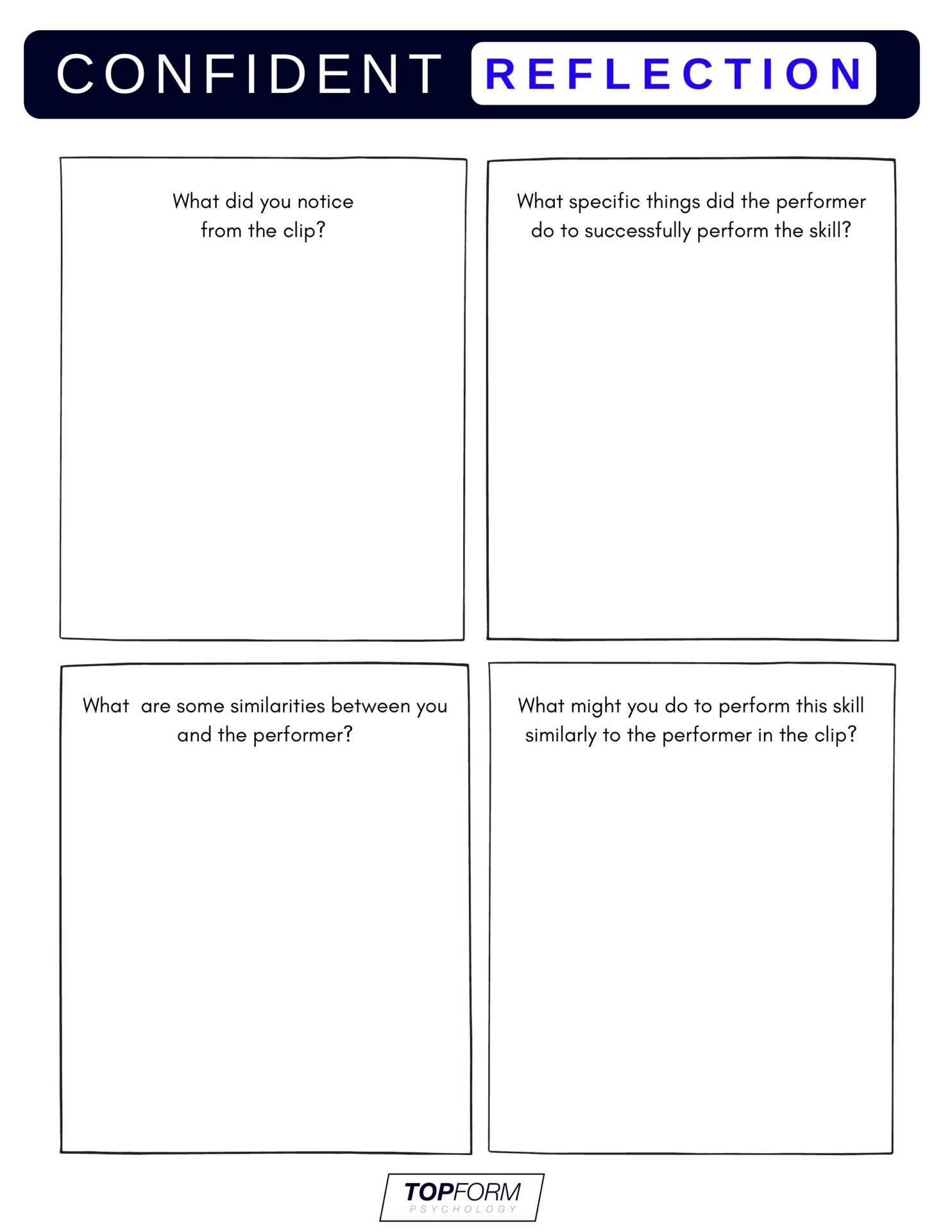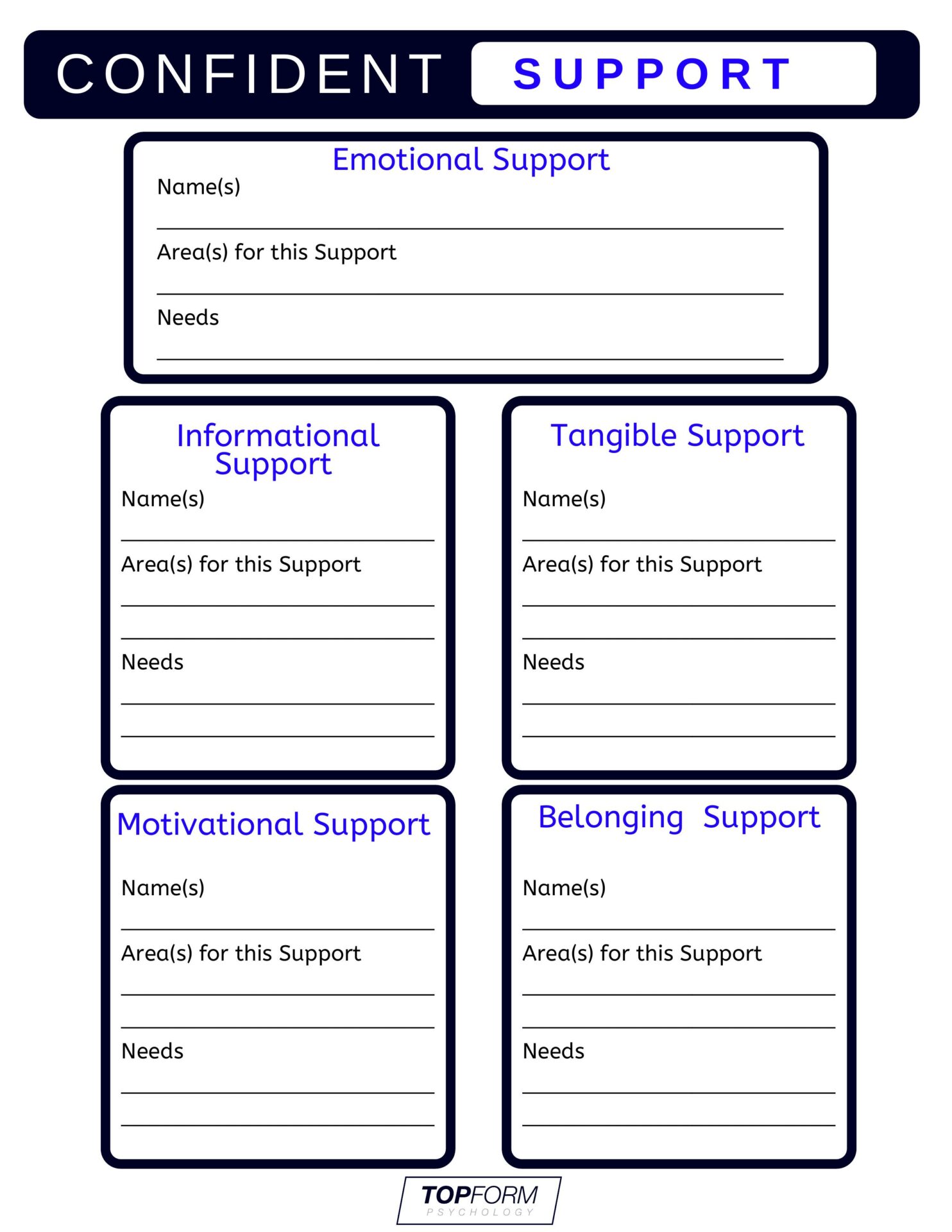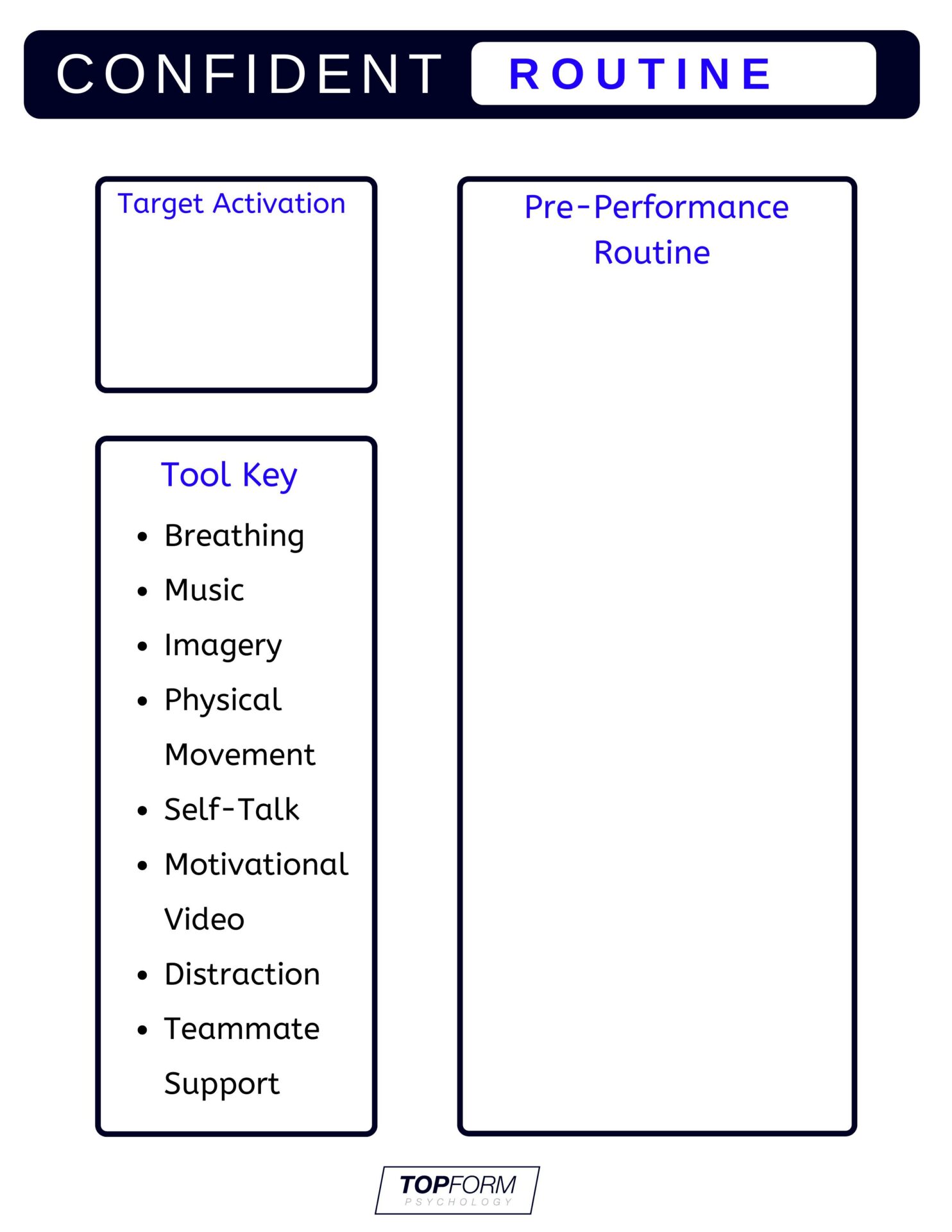At Top Form Psychology, a private practice specializing in sport psychology, the number one thing people come in to work on is their confidence. We have seen many athletes with incredible potential that lack confidence in themselves. It is common for coaches, fans, and even the most talented athletes to emphasize the importance of confidence; some go as far as saying that it is the most important thing to them. Here at Top Form, although we believe confidence is helpful, we do not believe it is everything. The purpose of this post is to guide athletes to explore their own confidence, gain perspective on it, and learn skills to practice to enhance confidence.
Let’s Start Simple… What is Confidence?
Confidence is the state of complete trust in a particular ability/skill that allows one to do rather than have to think. When you are overthinking and trying too hard in the midst of a competition, it could be assumed that you are not playing confidently. One important consideration is that confidence can ebb and flow as it is not stable. In other words, it is completely natural to feel confident in one competition and not confident in another. Another important consideration when considering one’s own confidence is that it is not a feeling that often comes due to passive behavior but is accompanied by experience, hard work, and intentionality. Think about what you have done today, this week, this month to earn your confidence. We know that preparation breeds confidence, so consider how you can better prepare to compete in a way that fuels you.
What Comes First…Successful Performance or Confidence?
If confidence was everything, no one would ever experience success; and if we waited to feel confident to perform well, we might as well be waiting forever. This section helps us better understand, that although confidence is important, it is not the most important. There are many athletes who have had a great performance with no confidence going into it; in fact, we hear revelations all the time (e.g., “I can’t believe I hit that homerun.”, “I am so surprised at how easy that race felt.”, etc.). It is not confidence in itself that allows us to perform well, but rather the behaviors we perform when we feel confident. Behavioral changes that occur when we feel confident include positive self-talk, a focus on controllable factors, and the ability to make mistakes, learn from them and move on. These behaviors allow us to perform well, and the best news is that we have control of our behaviors.
Directions: Think about a past competition when you felt confident. Identify the following behaviors (e.g. thoughts, focus, body language) that occurred during that competition. Once you complete each list check off the all the behaviors that are in your control.
How to Think About Confidence
Confidence, or lack thereof, is commonly used to describe an athlete’s general performance. Yet, if we break down our performance, we may find it in some aspects but not in all. For example, a basketball player may be confident in free throw shooting but lack that same feeling in man-to-man defense. Another example is for a track athlete who may feel very confident in her block starts, yet not confident in her speed. Thinking about confidence in this way increases overall confidence going into competition while also allowing us to specifically target areas we are not confident in throughout our training.
Input WORKSHEET
Ingredients to Building Confidence
Now that you have identified the areas in which you would like to build your performance, the next section will review the four contributing factors to ones confidence:
- Performance Accomplishment
- Vicarious Experience
- Verbal Persuasion
- Emotional Arousal
- Performance Accomplishment: The more opportunity to experience personal accomplishment in our sport, the more we feel confident because past success builds confidence. Unfortunately, we cannot rely solely on games, meets, matches, etc. to experience performance accomplishments. This is partly due to limited competitions, but also due to many uncontrollable factors in a competition setting that would limit our ability to create purposeful performance experiences. Being intentional in creating opportunities for us to experience success is a useful strategy to develop confidence.
2. Vicarious Experience: Watching someone else (specifically someone you can relate to) perform a skill that you lack confidence in can assist you in building your own confidence.
3. Verbal Persuasion: Being encouraged by others while also receiving feedback can assist us in developing confidence. Having coaches, parents, and teammates that support us around a specific skill can facilitate the process.
What do we need to hear? We tend to support people by how we think we may want to be supported.
4. Emotional Arousal: How an athlete perceives their emotional state will influence their belief in their ability to perform the task at hand. For example, an athlete that has butterflies in their stomach who perceives themselves as nervous may start to question if they are prepared enough to perform well. On the other hand, the athlete who perceives this as excitement may feel eager to play and showcase their skills.
Putting it All Together
Confidence is not everything but can certainly be a helpful facilitator to performance. We recommend not waiting to feel confident in order to take risks and engage in the behavior(s) identified in this chapter and worksheet. Ultimately, these habits will contribute to optimal performance. In the meantime, there are specific strategies you can use to continue to build your confidence. It is important to remember that the various techniques mentioned in this chapter are skills so, in order to benefit from these skills, practice and consistency are important.
TOP FORM PSYCHOLOGY
@topformpsych
(201)870-1315
